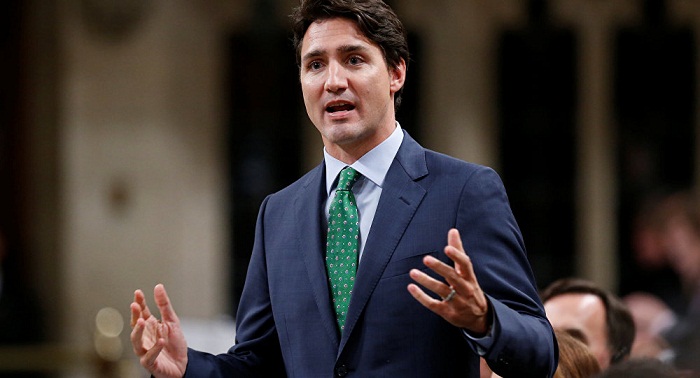Canada's first budget in two years looks set to join a pile of stalled bills in a Parliament besieged by partisan squabbling, a logjam that could be the trigger Prime Minister Justin Trudeau uses to call an early election.
Trudeau's Liberals have a minority of seats in the House of Commons and must rely on other parties to govern. They complain that the Conservatives, the largest opposition party, are blocking key bills as the COVID-19 pandemic still rages.
"In recent months the Conservatives have been delaying legislation to the point where their tactics have turned into obstruction. That must end," Liberal House Leader Pablo Rodriguez said in a statement to Reuters on Thursday.
Insiders say it is clear Trudeau's patience is starting to wear thin. In addition, a free-spending budget is seen as a potent springboard to an election later this year, especially if most Canadians have been inoculated by then against COVID-19.
Publicly, the prime minister insists he does not want an early vote, especially now while much of Canada battles a third wave of coronavirus infections. But it is increasingly likely he will seek one by the end of 2021, two years ahead of schedule, many well-placed Liberals say.
Trudeau, 49, has promised vaccinations to every Canadian who wants them by the end of September, and his budget includes C$100 billion ($81.4 billion) in extra spending over three years. read more
Pollster Leger this week put the Liberals at 34% public support, versus the Conservatives at 28%, enough for Trudeau to stay in office but not to win a majority. But other surveys show that Trudeau would win a resounding victory.
Some 110 bills introduced in the House have not passed. The budget is set to join that number shortly.
Among the stalled bills are Canada's greenhouse gas emissions targets, COVID-19 relief measures introduced last September, a ban on conversion therapy, billions in expenditure from November's Fall Economic Statement, a ban on assault-style firearms, and measures to ease voting rules during a pandemic.
CONSERVATIVES DENY OBSTRUCTIONISM
"Minority governments should fully expect the opposition is going to use the tools at its disposal," said Lori Turnbull, political science professor at Halifax's Dalhousie University.
Liberals complain the Conservatives are using parliamentary procedures to drag out debate on minor matters, eating up time that would normally be devoted to major bills.
But Gérard Deltell, the Conservative House leader, said his party was doing its job and denied charges of obstructionism.
"This is serious business. People in my party have the right to speak and they used that right," he said.
One Liberal source suggested Parliament was on the verge of becoming dysfunctional.
"If you're continually putting in roadblocks, the question is raised, is this Parliament working properly and if not, what is the answer?" the source said.
One obvious option for Trudeau is to go to the office of the governor general - which represents Queen Elizabeth, Canada's head of state - and ask for Parliament to be dissolved on the grounds the opposition has made it impossible to govern.
Liberals note that is exactly what former Conservative Prime Minister Stephen Harper did in 2008.
"If they (Liberals) request dissolution, they will get it and they are able to say: 'The Conservatives jammed us and we had to go to an election,'" Turnbull said.
Reuters
More about:















-1737454742.jpg&h=190&w=280&zc=1&q=100)
































